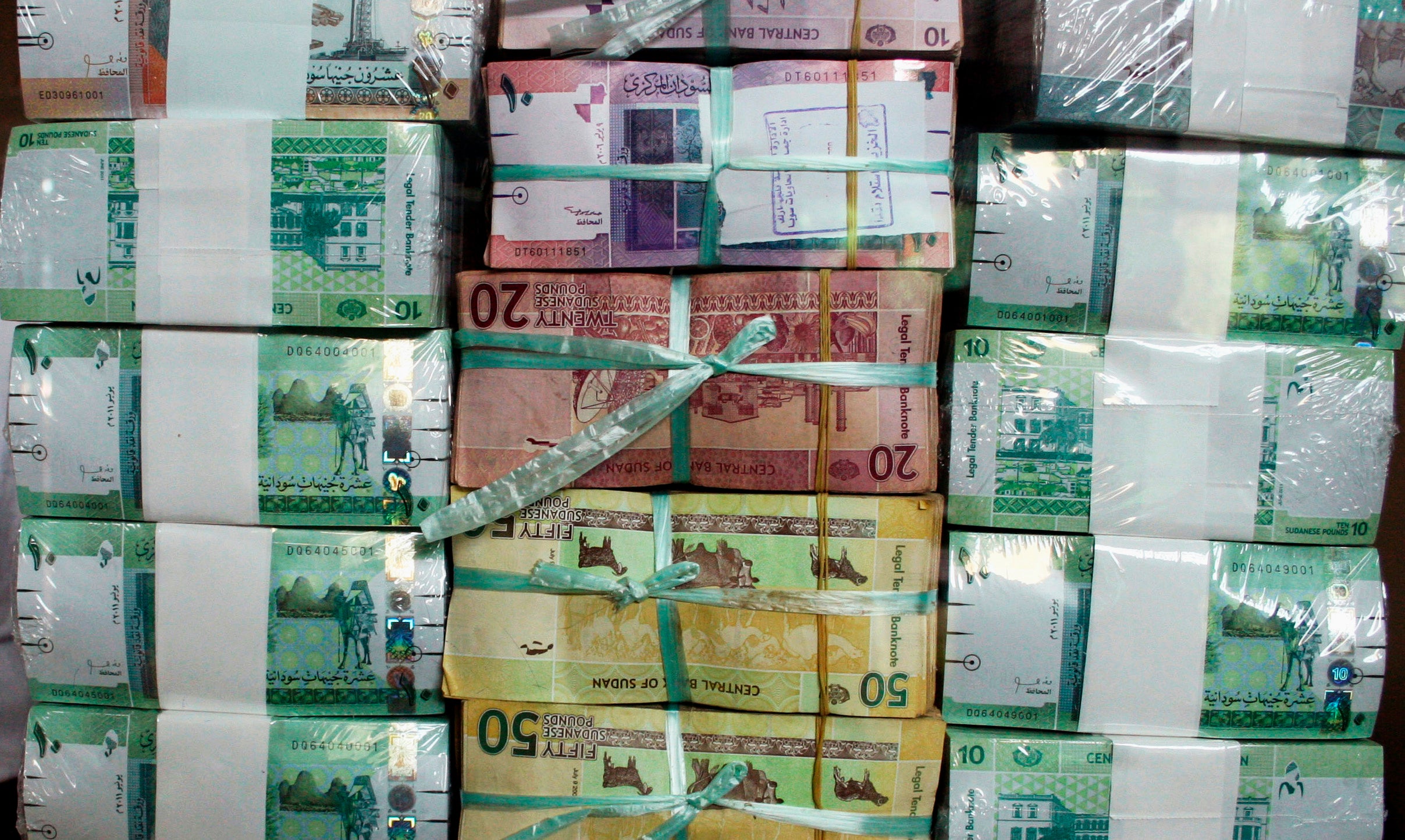Sudan floats currency, part of measures to overhaul economy
Sudan has taken the unprecedented but expected step of floating its currency

Your support helps us to tell the story
From reproductive rights to climate change to Big Tech, The Independent is on the ground when the story is developing. Whether it's investigating the financials of Elon Musk's pro-Trump PAC or producing our latest documentary, 'The A Word', which shines a light on the American women fighting for reproductive rights, we know how important it is to parse out the facts from the messaging.
At such a critical moment in US history, we need reporters on the ground. Your donation allows us to keep sending journalists to speak to both sides of the story.
The Independent is trusted by Americans across the entire political spectrum. And unlike many other quality news outlets, we choose not to lock Americans out of our reporting and analysis with paywalls. We believe quality journalism should be available to everyone, paid for by those who can afford it.
Your support makes all the difference.Sudan took the unprecedented but expected step of floating its currency Sunday, meeting a major demand by international financial institutions to help transitional authorities overhaul the battered economy
The flotation is the boldest economic measure taken by the transitional government that has ruled the African country after a popular uprising led to the military’s overthrow of autocrat Omar al-Bashir in April 2019.
The U.S. dollar had been trading at over 350 pounds to the dollar on the black market, while its official rate was at 55 pounds to the dollar.
Sudan’s currency will now fluctuate according to supply and demand, according to a statement by the Central Bank. It said the flotation is part of measures the transitional government has embarked on to help stabilize the country’s economy.
The Central Bank said the flotation would help “normalization of ties with international and regional financial institutions and friendly countries to ensure the flow of grants and loans” into Sudan's economy.
Sudan has for years struggled with an array of economic woes, including a huge budget deficit and widespread shortages of essential goods and soaring prices of bread and other staples. The country is $70 billion in debt and its annual inflation soared past 300% last month.
The move would likely provoke a popular backlash as the price of goods and services rise in response to the fall in the pound’s value and the possible hike in prices of fuel and other essential goods.
The country was plunged into an economic crisis when the oil-rich south seceded in 2011 after decades of war, taking with it more than half of public revenues and 95% of exports.